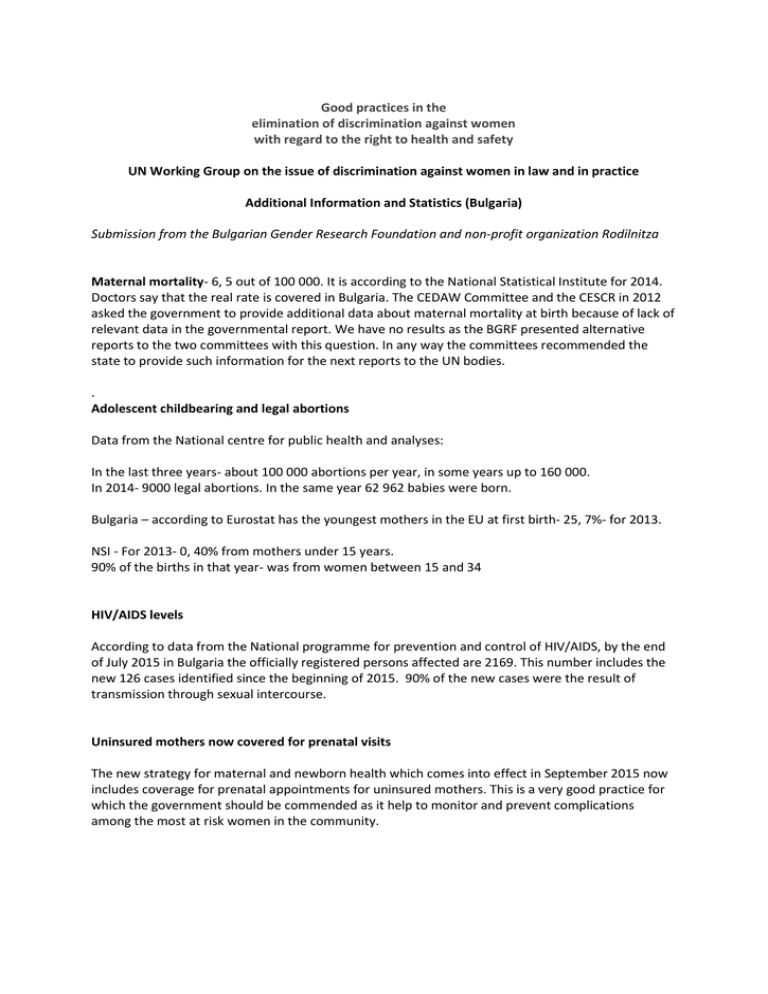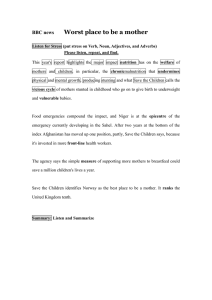Good practices in the elimination of discrimination against women
advertisement

Good practices in the elimination of discrimination against women with regard to the right to health and safety UN Working Group on the issue of discrimination against women in law and in practice Additional Information and Statistics (Bulgaria) Submission from the Bulgarian Gender Research Foundation and non-profit organization Rodilnitza Maternal mortality- 6, 5 out of 100 000. It is according to the National Statistical Institute for 2014. Doctors say that the real rate is covered in Bulgaria. The CEDAW Committee and the CESCR in 2012 asked the government to provide additional data about maternal mortality at birth because of lack of relevant data in the governmental report. We have no results as the BGRF presented alternative reports to the two committees with this question. In any way the committees recommended the state to provide such information for the next reports to the UN bodies. . Adolescent childbearing and legal abortions Data from the National centre for public health and analyses: In the last three years- about 100 000 abortions per year, in some years up to 160 000. In 2014- 9000 legal abortions. In the same year 62 962 babies were born. Bulgaria – according to Eurostat has the youngest mothers in the EU at first birth- 25, 7%- for 2013. NSI - For 2013- 0, 40% from mothers under 15 years. 90% of the births in that year- was from women between 15 and 34 HIV/AIDS levels According to data from the National programme for prevention and control of HIV/AIDS, by the end of July 2015 in Bulgaria the officially registered persons affected are 2169. This number includes the new 126 cases identified since the beginning of 2015. 90% of the new cases were the result of transmission through sexual intercourse. Uninsured mothers now covered for prenatal visits The new strategy for maternal and newborn health which comes into effect in September 2015 now includes coverage for prenatal appointments for uninsured mothers. This is a very good practice for which the government should be commended as it help to monitor and prevent complications among the most at risk women in the community.


